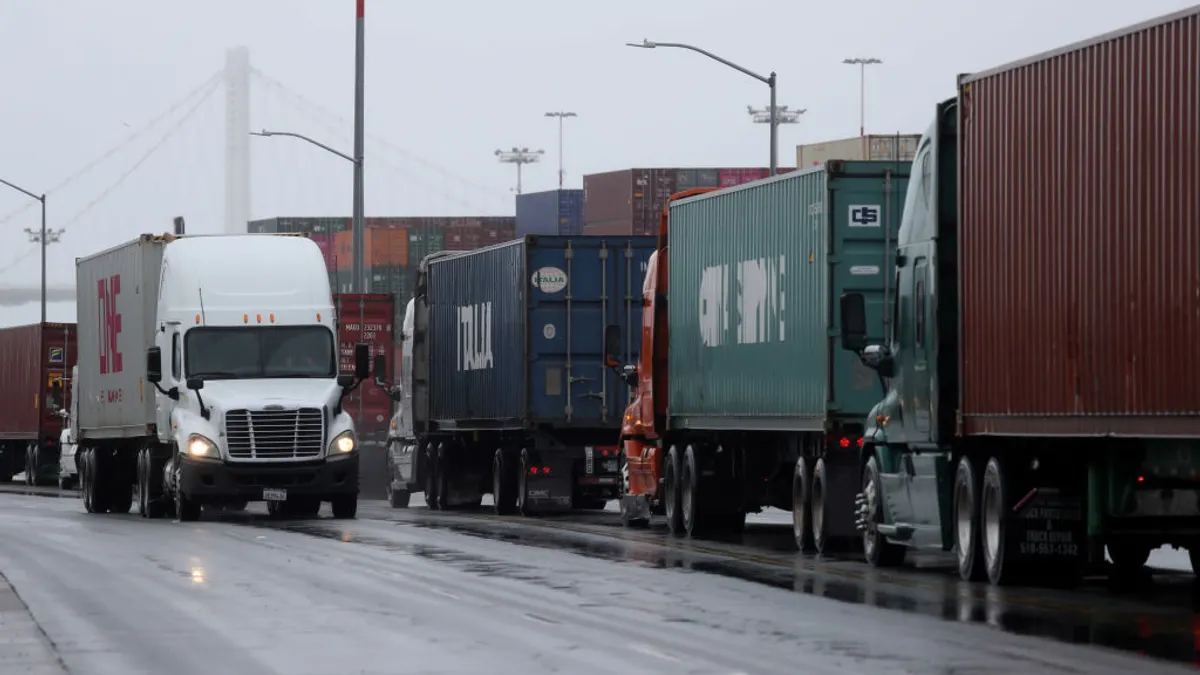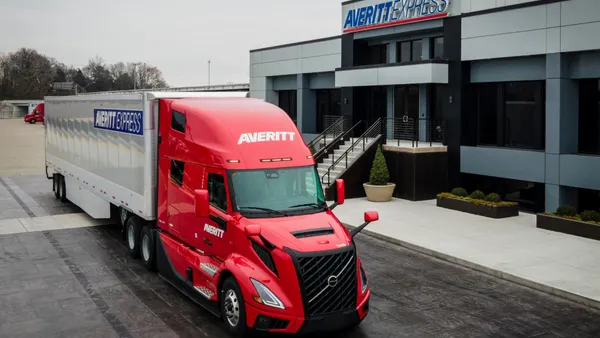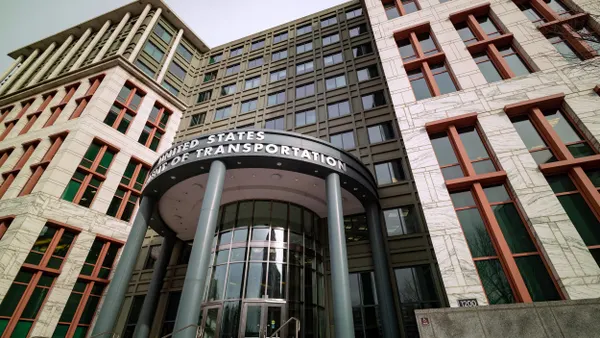Dive Brief:
- The transportation sector experienced the fastest nominal wage growth in the U.S. during the first quarter of 2020, at 3.2% year-over-year and 0.8% quarter-over-quarter, according to compensation software and data company PayScale. The U.S. PayScale Index measures the quarterly change in the total cash compensation of full-time, private industry employees across the country.
- Much of the wage growth occurred toward the end of the quarter, when states began implementing stay-at-home orders as the COVID-19 outbreak worsened in the U.S. PayScale attributes the wage growth to the spike in demand for delivered goods and, therefore, the increased need for workers to fulfill the demand.
- "In this case, the market is responding to the fact that there's been this health pandemic, this health scare, and people's ability to shop and rely on goods has drastically changed," PayScale Director of Research Sudarshan Sampath told Transport Dive in an interview Tuesday. "Ergo, that's where we're seeing a lot of growth in the transportation industry and I expect it to continue through Q3."
Dive Insight:
Transportation jobs ranked second-to-last for wage growth in PayScale’s Q4 2019 index. The jump to first place in a short amount of time reflects how swiftly the pandemic changed the economy. "It doesn't matter what industry, but whenever you see extremely fast pay growth, you need to realize that you can stay ahead of the curve," Sampath said.
If a business is paying employees below what the median wage is, "something probably needs to change," he said, particularly when the job applicant pool is in high demand and candidates can be selective about their employers. "In any recession — even industries that are going to do well, and I predict transportation to do quite well in the next few quarters — there are winners and losers. And one of the key ways that you can be a loser is if you just don't have enough workers to execute on your business objectives," he said.
Sampath said a recession is "unavoidable at this point in time," as GDP in the U.S. is expected to contract next quarter.
He said he has high hopes for the transportation industry but noted economic conditions affect segments of the industry differently. While some small businesses — not hauling essential supplies — are sidelined and consider applying for payroll loans under the federal stimulus bill, Amazon opened thousands of warehouse and delivery roles to handle the e-commerce boom.
Zach Thomann, general manager of PFS, an e-commerce 3PL, said in an email statement that the company is seeing higher demand than usual at this time of the year for household essentials, consumer packaged goods, health and beauty, cosmetics, and jewelry. "Some brands and retailers are seeing demand in-line with their peaks," he said.
This means fleets have been called upon tirelessly, and recruiting and training drivers is still crucial, even if it's now taking place online.
Sampath said the immediate impact of high logistics demand is an increase in wages in the transport industry. PayScale found the majority of the country's wage growth in Q1 was driven by Seattle and San Francisco, cities that instituted social distancing measures earlier than the rest of the country. So long as those policies persists in the states, so too could demand for workers.
"And then we sort of have to wait to see, do things go back to normal? Do our patterns of shopping, do our patterns of interacting with people — have they fundamentally changed from this experience?" Sampath said.
In a highly competitive industry such as trucking, "any executive who wants to be ahead of the curve really needs to rely on data-driven decision-making, and really understand how the market is changing," he said.








